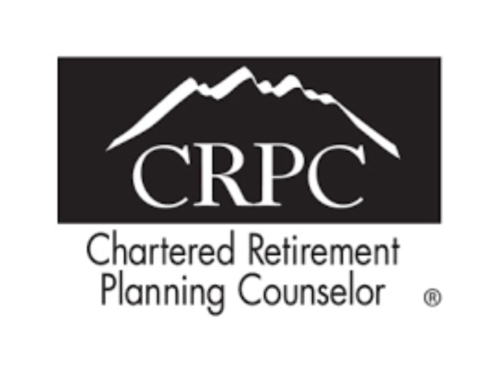The Crucial Role of Financial Representatives in Retirement
Posted by Morgan Fisher
Serving Cedar Rapids, Iowa, and Surrounding Areas.
Planning for Retirement’s Go-Go, Slow-Go, and No-Go Years
When you think about “retirement planning,” what immediately comes to mind? For many, it’s a mix of investments, Social Security, healthcare coverage, tax strategies, and other financial considerations. These elements are crucial in shaping your retirement, as they all need to align for your plan to succeed.
However, a truly fulfilling retirement goes beyond financial stability. Money is a tool, not the ultimate goal.
One aspect often overlooked in retirement planning is envisioning how you’ll spend your time and how your health will impact those activities as you age. Ideally, we’d all enjoy robust health throughout our lives, but reality often presents challenges. 
How does a financial advisor address the evolving financial needs of retirees alongside their changing health over potentially decades of retirement? The key is aligning retirement goals with the natural aging process. While everyone’s retirement journey is unique, the stages of aging tend to follow similar patterns.
Your retirement strategy should consider your physical capabilities, and having financial resources that adapt to different phases of retirement is vital for long-term security. For instance, if you dream of adventurous activities like cycling across Europe, it’s wise to plan for such experiences early in retirement, when you’re likely to be more physically able.
When planning your retirement finances, it is helpful to divide it into three phases: the Go-Go Years, the Slow-Go Years, and the No-Go Years. Let’s delve into each phase.
The Go-Go Years
These initial years of retirement are often the most vibrant and energetic. It’s a time for pursuing bucket list dreams, whether that’s traveling the world or engaging in active hobbies. While health can vary widely, many retirees experience good health during this phase.
The Go-Go Years are often about making memories, whether through travel, spending time with friends, or being actively involved with family. It’s okay to indulge a bit during this time, recognizing that these experiences are part of what makes retirement fulfilling.
The Slow-Go Years
As people move into their mid to late 70s or early 80s, they may enter the Slow-Go Years. This phase involves adjusting to potential health changes and making lifestyle adaptations. While it doesn’t mean giving up on hobbies or social activities, it may require pacing oneself differently.
This could mean exploring local attractions instead of extensive travel or finding new ways to engage in favorite pastimes. Health management becomes increasingly important during this phase, with more focus on healthcare needs and potential long-term care planning.
The No-Go Years
The No-Go Years typically represent a phase of increased reliance on support systems due to declining health or cognitive abilities. This may involve more time spent on reflection, legacy planning, and ensuring affairs are in order for end-of-life care.
Predicting the duration of this phase is challenging, but planning for potential scenarios, such as assisted living or nursing care, is prudent. Financially, this phase requires careful management to cover healthcare expenses and maintain quality of life.
Navigating the Three Phases
Each phase of retirement brings its own set of challenges and joys. By planning ahead, both financially and emotionally, you can better navigate these transitions and make the most of each stage.
Remember, you don’t have to plan for retirement alone. Iowa Retirement Benefits & Solutions can offer guidance tailored to your unique needs, helping you create a retirement journey that’s fulfilling and well-prepared for whatever comes your way.
Investment advisory services are offered through Fusion Capital Management, an SEC registered investment advisor. The firm only transacts business in states where it is properly registered or is excluded or exempted from registration requirements. SEC registration is not an endorsement of the firm by the commission and does not mean that the advisor has attained a specific level of skill or ability. All investment strategies have the potential for profit or loss.




